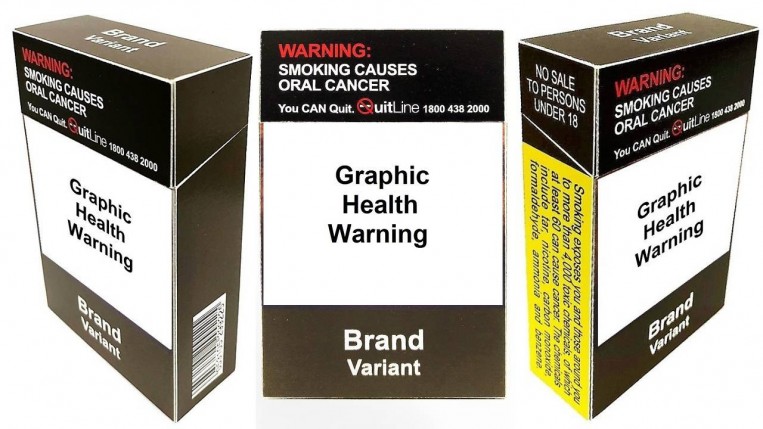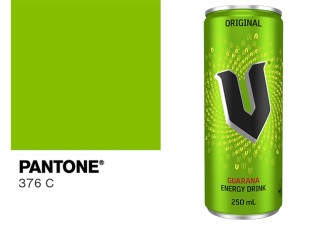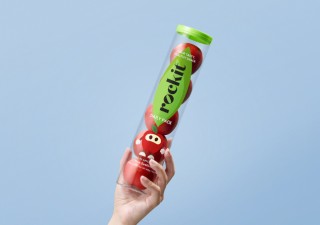Singapore's Tobacco Plain Packaging Law: The Effect on Intellectual Property Rights
30 November 2018

Singapore has announced the “plain packaging” law for tobacco products sold within the country from 2020 onwards. This means that the packaging of all tobacco products sold in Singapore will be stripped of colour, brand images and other promotional information if the Singaporean Parliament passes the new amendments to the Tobacco (Control of Advertisements and Sale) Act in early 2019.
As a result of the new law, all cigarette packaging, regardless of brand, will come in the same size, shape and appearance, i.e., a plain surface with a graphic health warning that will cover about 75% of the entire packaging.
The new plain packaging law aims to reduce the attractiveness of tobacco products and their ability to mislead consumers on the harmful effects of smoking. The enlarged warning signs (75%, up from the 50% mandated now) will make the graphic more noticeable and effective, and better inform smokers and non-smokers of the risks associated with tobacco use.
The Ministry of Health (MOH) claims that this plain packaging law is a result of eight years of deliberation referencing more than 200 studies, and three rounds of public consultations between 2015-2018.
Although the trademarks/product brand names are still allowed to be on the cigarette packaging, they will have to be printed in a standardized font style at a spot decided by the relevant authorities. This means that the plain packaging law will prevent use of any prior or future registered cigarettesrelated trademarks. Although the plain packaging law would be a valid obstacle to use for protecting registered cigarettes-related trademarks against a revocation action, trademark owners will face difficulties in finding a reason to maintain their registrations or file new cigarettes-related trademark applications.
Alternatively, trademark owners may be able to apply for a “word mark” in the same standardized font style as prescribed by the new plain packaging law. This would render the cigarettes manufacturer to have some protection of their brand names under the new law.
It is important to note that legislative amendments will also be drafted to preserve the legal position for tobacco-related trademarks under the Trademark Act and tobacco-related designs under the Registered Designs Act.
Once the laws come into effect, Singapore will join a growing number of countries, including Australia, France, Ireland, New Zealand, Norway and the UK, which have mandated plain packaging for tobacco products.
With regard to plain packaging laws on an international level, the World Trade Organization (WTO), on June 28, 2018, circulated the panel report in cases brought by Honduras, the Dominican Republic, Cuba and Indonesia regarding plain packaging laws. The WTO panel commented that the plain packaging law improves public health by reducing the use of tobacco products, rebuffing claims that alternative measures would be equally effective. It also rejected the argument that plain packaging laws had unjustifiably infringed tobacco trademarks and violated intellectual property rights.
Intellectual property rights associations such as INTA, ECTA, MARQUES, ITMA, ASIPI, AIPPI, and LES have all expressed their concerns about plain packaging laws. For instance, LES Britain & Ireland wrote in its response to the UK Department of Health Consultation its concerns on the effect of the Plain Packaging Law on
1) The loss of value to intellectual property rights,
2) The financial loss that is likely to result from the loss of intellectual property rights,
3) The risk of increased counterfeiting and smuggling, and
4) The possibility that making smoking “forbidden” might increase its appeal.
INTA expressed a statement regarding New Zealand’s plain packaging law that it “submits that the imposition of mandatory plain packaging for tobacco products puts New Zealand at risk of depriving trademark owners of valuable property, which is inconsistent with its trademark legislation.”
Similarly, MARQUES states that “standardized packaging legislation would deny one sector of industry the benefits of its intellectual property rights, and would be a dangerous precedent for the potential loss of rights in other industries.”
In short, the concerns expressed by intellectual property rights associations is that plain packaging laws set a dangerous precedent for the elimination of product differentiation and the deprivation of other industries’ intellectual property rights. For instance, a parliamentary committee in the United Kingdom has considered plain packaging for alcoholic beverages. Furthermore, the Philippines’ Department of Health has taken the position that it is entitled to prohibit firms from using registered trademarks on infant milk products that may “erode the efforts of the government to promote breast-feeding.”
In summary, public benefits and public health are undoubtedly very important and should be prioritized over anything. However, it is not certain whether Singapore’s decision to enforce the plain packaging law will fix the problem, or most importantly, fix the problem at its root. The question is whether there are any better alternatives to prevent people from starting to smoke cigarettes and encourage them to quit.







